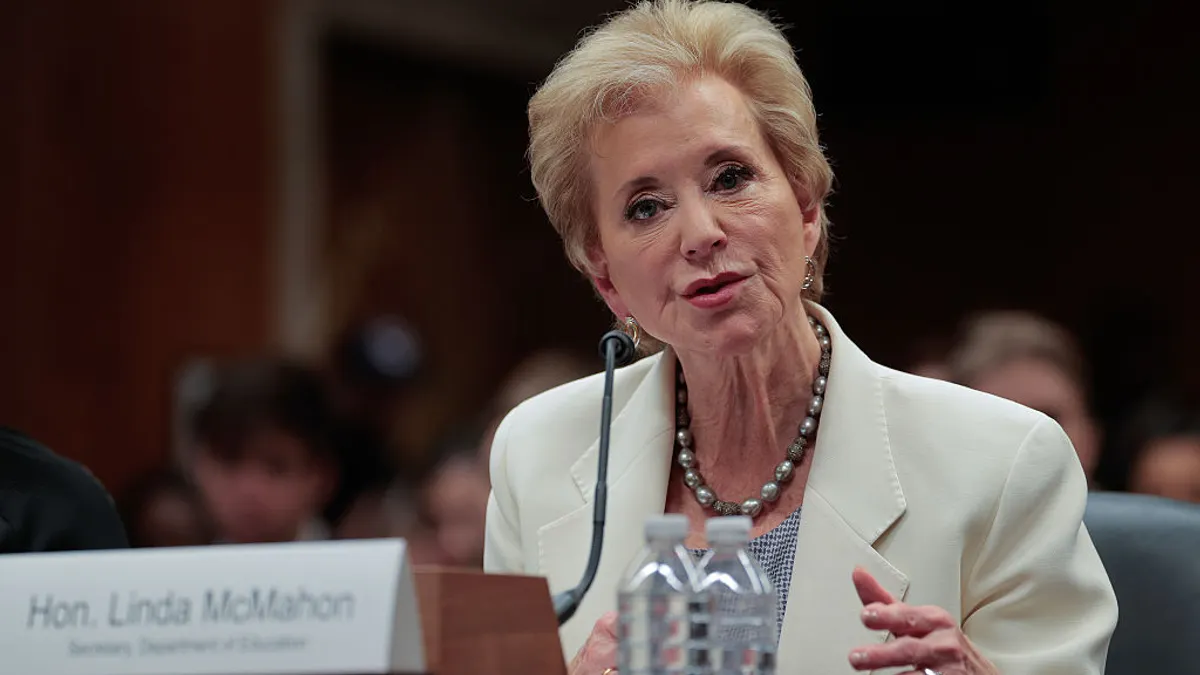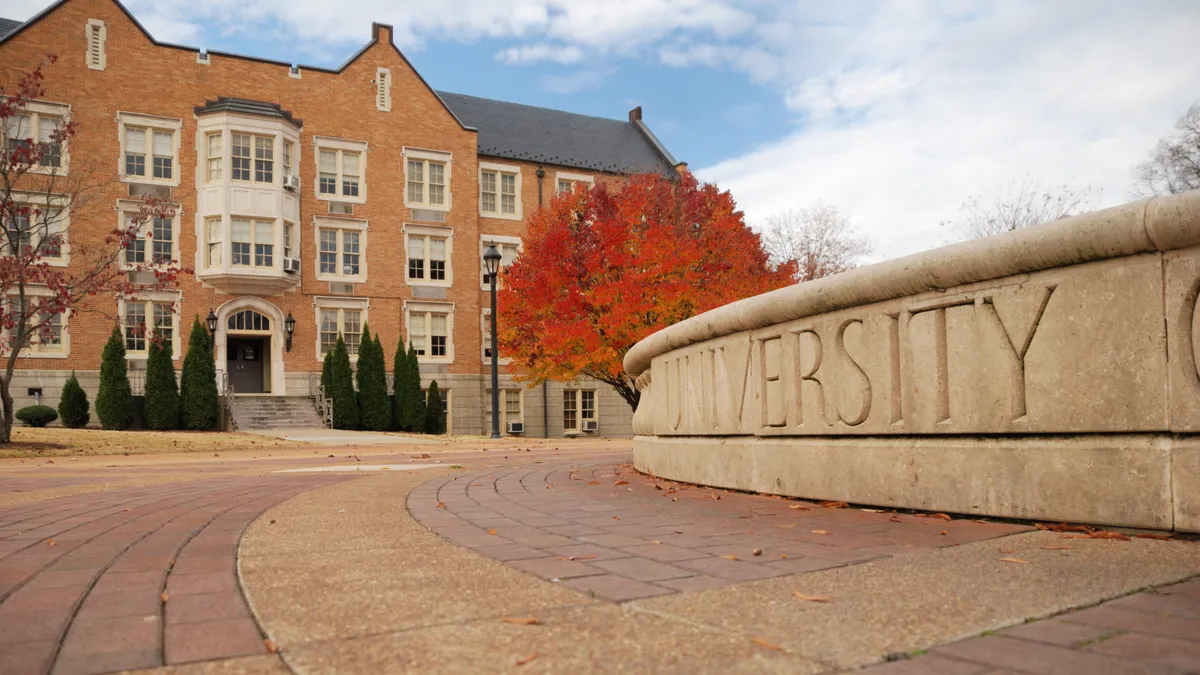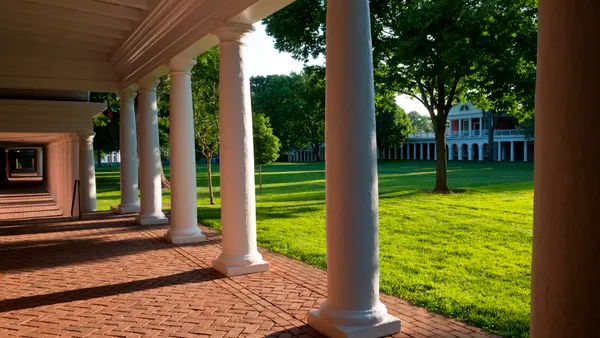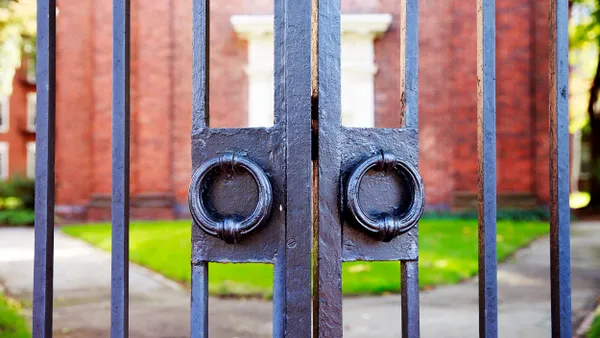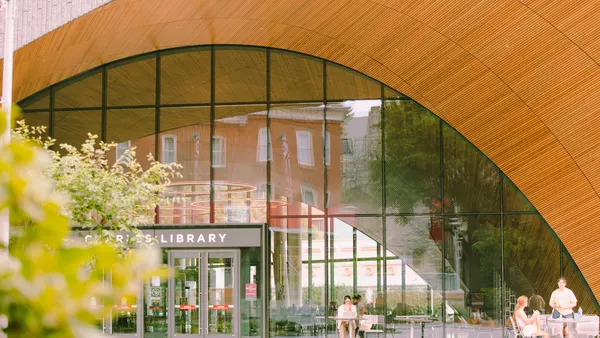Dive Brief:
-
Several colleges' decisions to offer campus-based instruction are the subject of strikes or legal pushback as coronavirus cases mount in the U.S.
-
That includes the University of Iowa, where some on campus are urging the administration to move entirely to virtual education, and the University of Michigan, where graduate students are demanding more flexibility during the pandemic.
-
Experts say strikes are more likely on campuses where administrators don't consult with faculty members before making decisions or forge agreements with their unions about pandemic-related concerns.
Dive Insight:
U of Michigan graduate student instructors and staff assistants are striking this week to protest the university's response to the pandemic and policing on campus. They're making several demands of administrators, including that they increase coronavirus testing, allow graduate employees to switch from in-person to remote work, and cut ties with the local police and federal immigration authorities.
The U of Michigan is offering several class formats this fall and wrapping up all in-person instruction before Thanksgiving break. The school is also instructing faculty and staff to continue working remotely unless their department chair or unit leader tells them to return to campus.
In response to the strike, university officials posted a statement to Twitter on Monday noting that the graduate student union's contract prohibits its members from participating in actions that interfere with the university's operations and that the state bans public employees from striking.
The union "has raised a number of issues that cannot be resolved as a matter of their contract or through a collective bargaining procedure," the statement reads. "The university is preparing to continue operations, including classes, in the event of a strike."
When reached for comment, a university spokesperson directed Education Dive to an online post dated Sept. 7 saying it has granted the requests of all graduate student instructors who have asked to work remotely. It also details the university's coronavirus testing plans.
The strike has been scheduled to last until Friday, though the union could extend it if its demands aren't met, MLive reported.
They aren't the only higher ed group to stop work in protest. Some 700 students, staff and faculty at the U of Iowa pledged to call in sick last Wednesday, according to a local media report.
The event's organizers, which are calling it a "sickout," demand the university switch to entirely online instruction. As of Friday, the university had 1,569 positive coronavirus cases self-reported from students and 20 from employees, according to its dashboard. It also had more than 100 students living in residence halls either in quarantine or in self-isolation.
"Behind each number is a staff member with no other option but to risk their life cleaning dorms, a professor trying to manage safety in an overcrowded classroom, a freshman with asthma, afraid to speak up when their professor comes too close," the sickout's organizers wrote in an op-ed on Tuesday for the Iowa City Press-Citizen.
Some worker groups are taking legal action. The University of Akron's faculty union is hoping to reinstate roughly 72 employees through an arbitration case. Meanwhile, employees at the University of North Carolina are suing the system, arguing that they face unsafe working conditions.
College leaders can prevent strikes and other types of collective action by consulting faculty members before making decisions, experts said.
"One of the things many faculty are worried about is a lack of transparency," said Timothy Cain, a higher education professor at the University of Georgia. "We've seen decisions being made ... without fully communicating what the decisions are being based on and without having a shared process to determining what is the best course of action."
Other colleges are forging agreements with their unions over pandemic-related concerns, such as whether essential workers will receive hazard pay and personal protective equipment.
The National Center for the Study of Collective Bargaining in Higher Education and the Professions at Hunter College, in New York, has identified dozens of these types of agreements. "There are many institutions … that understand their obligations to negotiate and are working with the unions to develop plans and develop responses that are satisfactory," said William Herbert, the center's executive director.
The University of Florida reached an agreement with its graduate union to prevent terminations or negative performance reviews of graduate employees whose academic progress suffered because of the pandemic. California State University likewise hashed out an agreement with its faculty association to address coronavirus-related concerns.





